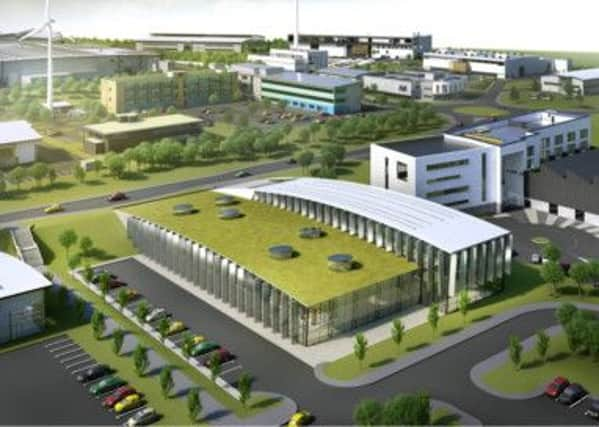World’s most advanced hi-tech factory of its type for Yorkshire


The University of Sheffield Advanced Manufacturing Research Centre (AMRC) with Boeing has secured funding for the AMRC Factory 2050, which is set to be the most flexible and advanced facility of its kind in the world.
The factory, which will advance research on new aircraft and energy technologies, will be the UK’s first fully reconfigurable manufacturing facility, capable of rapidly switching production between different high-value and one-off parts.
Advertisement
Hide AdAdvertisement
Hide AdProfessor Keith Ridgway, executive dean of the University of Sheffield AMRC, said: “This will be the most advanced factory in the world.
“It will give us a home for the research and demonstration work associated with building the next generation of aircraft and energy technologies.
“The aim is to be able to manufacture any component as a one-off, and instantaneously switch between components.
“This will be a totally reconfigurable factory, one of the goals of the advanced manufacturing research strategy.”
Advertisement
Hide AdAdvertisement
Hide AdThe creation of the new facility is supported by a £10m grant from the Research Partnership Investment Fund, managed by the Higher Education Funding Council for England (HEFCE).
Leading manufacturers including Boeing, Airbus, Rolls-Royce, BAE Systems and Spirit AeroSystems are also committed to supporting the project.
Professor Sir Keith Burnett, vice-chancellor of the University of Sheffield, said: “We are delighted that HEFCE is supporting the AMRC Factory 2050, and deeply proud of the vision and talent of our engineers who have a global reputation for advanced manufacturing research which works directly with industry in ways which transform business, create jobs and strengthen our economy.
“This new facility brings together government, business and the university to drive the innovation that is so important to the UK’s future economy and assures our place at the forefront of global high value manufacturing.”
Advertisement
Hide AdAdvertisement
Hide AdThe factory will combine technologies including advanced robotics, flexible automation, unmanned workspace, off-line programming in virtual environments linked to plug-and-play robotics, 3D printing from flexible automated systems, man-machine interfaces, and new programming and training tools.
Around 50 researchers and engineers will work in the new 4,500 square metre facility, which will be constructed largely from glass, to showcase the work being carried out within.
The factory is expected to be completed by the end of 2014. Its location has yet to be confirmed, but it is anticipated it will be close to the AMRC with Boeing site in Catcliffe, Rotherham.
The machining and materials research centre was established in 2001 in a £15m collaboration between the university and aerospace giant, with support from the now-defunct regional development agency Yorkshire Forward and the European Regional Development Fund.
Advertisement
Hide AdAdvertisement
Hide AdIts researchers work with more than 70 member companies on both individual projects and collaborations benefitting all members, with work focusing on developing new technologies and processes for machining high-performance metal alloys used in aerospace and other industries.
David Willetts, Minister for Universities and Science, said it was vital to encourage collaboration between the UK’s universities and the private sector to boost funding for research.
“These excellent projects will not only deliver new knowledge and applications for industry, but will accelerate growth and foster innovation between the research base and business, keeping the UK ahead in the global race,” he said.
“Our £300m investment has secured over £855m from business and charities – a total investment of £1.15bn.
“This is an extraordinary result, far exceeding the required private-to-public funding ratio of two-to-one.”